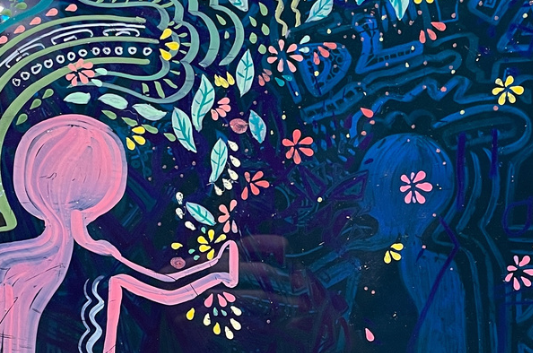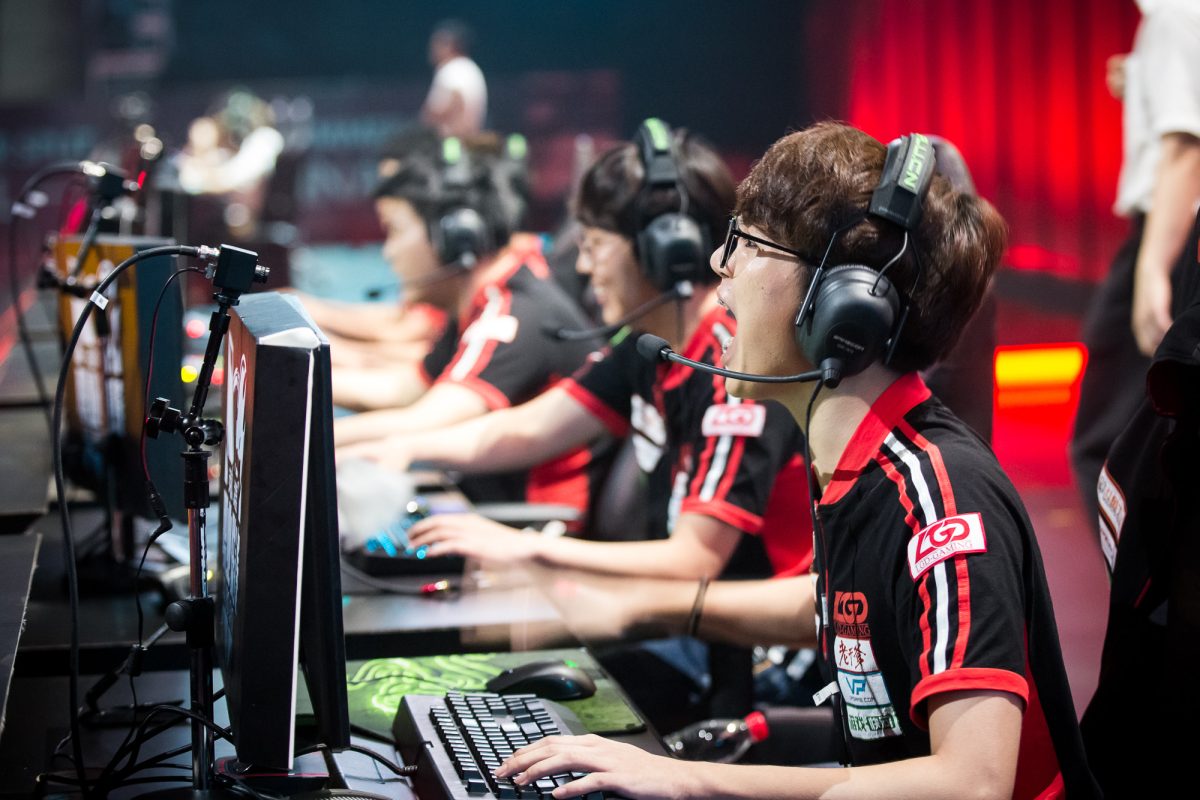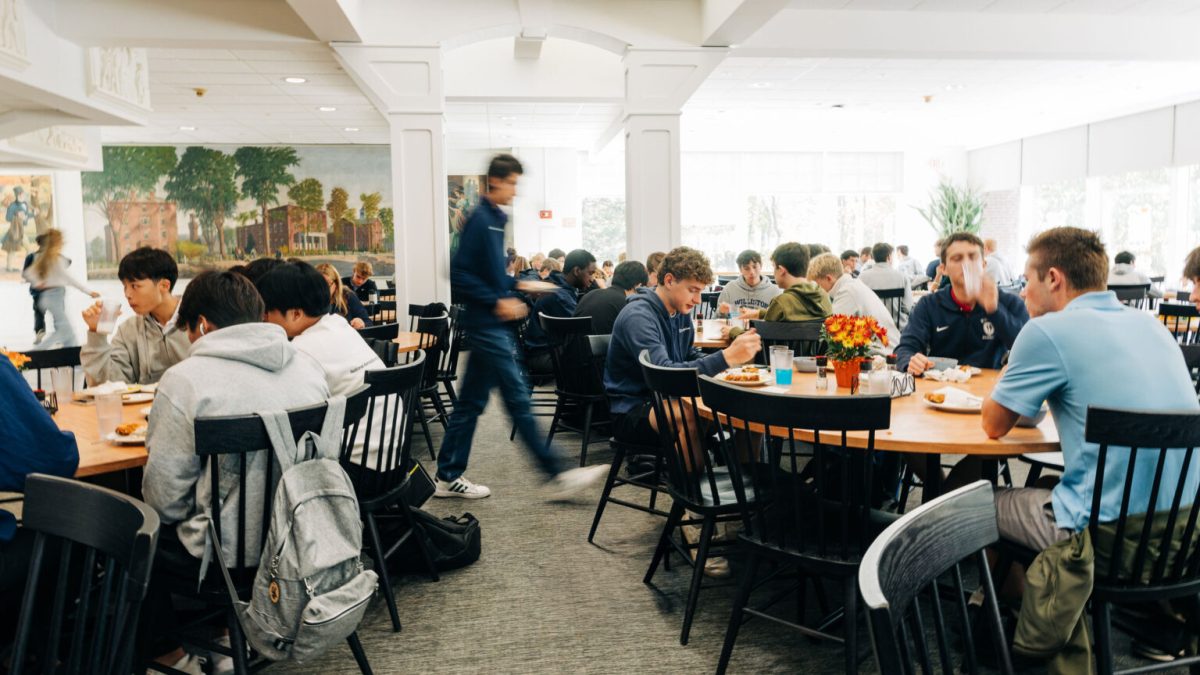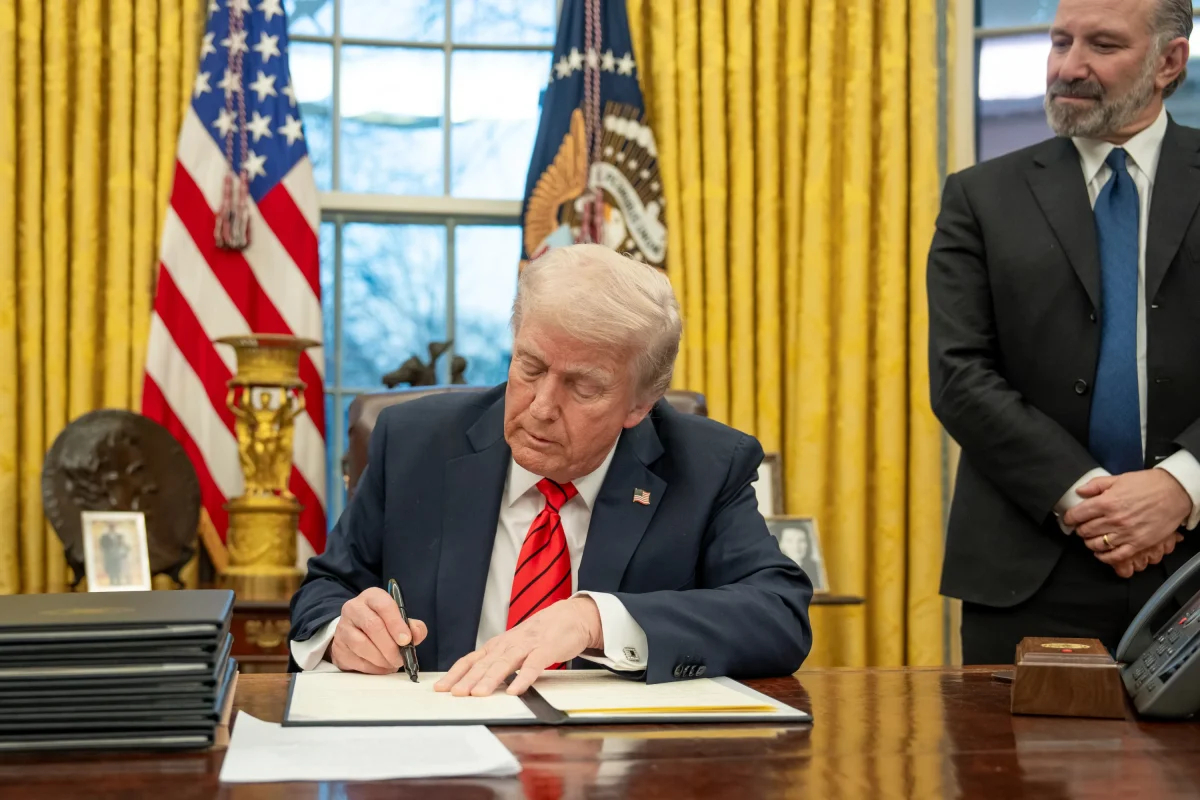The digital age has simultaneously enriched and tested friendships, creating a paradox where the very tools meant to bring us closer also build walls and break them down.
On one hand, social media allows us to bridge miles effortlessly, sharing moments, thoughts, and support with the tap of a button. The connections feel ever-present, as if friendships can exist in the everyday rhythm of life, regardless of physical separation. We can feel part of each other’s worlds, even from afar, deepening bonds and creating a sense of closeness that transcends distance.
Yet, something essential is often lost. Without the nuances of face-to-face connection—the warmth of a smile, the tone of a voice—misunderstandings can start to linger.
As River Grady, a sophomore from Bedford, N.H., explained, “Sometimes texting with people can start arguments because there’s no emotion behind the text.”
In texts, without body language or vocal tone, the meaning can get twisted.
“Like, I could text you ‘I got locked out, come now,’ and you might think I’m mad, when really I’m just standing outside because I was making mac and cheese,” she said.
In today’s digital world, social media has a powerful influence on how we experience relationships. With constant likes, comments, and notifications, it’s easy to start measuring the value of our connections based on these surface-level interactions and statistics. Teens, in particular, can feel the pressure of online presence.
River highlighted this, especially for girls.
“I think everybody feels a little bit of pressure, especially as a teenage girl.” She added, “You almost feel like if you don’t fit it, it’s not good enough.”
Ashley Zhang, a junior from Shenzhen, China, has her own way of navigating the expectations of social media.
“I don’t feel pressured about sharing my relationships or friendships online,” she said. “For me, social media is more like a platform where I can interact and connect with people.”
Living abroad, she finds social media essential to staying in touch with friends from home.
“Most of my friends are back in China or living somewhere else, so social media is the only way I really get to know what’s going on in their lives,” she said.
However, Ashley acknowledged the limits of virtual connection, saying, “You don’t have body language happening. You don’t see their expressions.”
On the positive side, platforms like Instagram, TikTok, and Snapchat allow users, especially younger people, to maintain connections across distances, helping friendships flourish despite physical separation. These platforms provide a space to share experiences and interact daily, fostering a sense of closeness despite being thousands of miles apart.
Yet, according to Yale Medicine, the constant engagement with social media can also foster feelings of isolation and insecurity, particularly when relationships are measured by likes, comments, or public acknowledgment. Teens are especially vulnerable, with many reporting feelings of exclusion or anxiety based on online interactions.
Despite these challenges, one student offered an antidote to the pressures of social media.
A Williston student who asked to remain anonymous insightfully stated, “The best state is when you are spiritually fulfilled, enough to support yourself… it’s easier to find happiness when you treat everyone else as positive additions to your life.” This kind of inner fulfillment allows for relationships that are based on real moments and genuine connection, rather than seeking external validation.
Nina Kou, a sophomore from Shanghai, China, feels more restricted when communicating offline, claiming that she “feels less pressure when communicating with friends or like making friends online than in real life.”
However, she acknowledged the awkwardness that can arise when transitioning to face-to-face interactions.
“When you meet in real life, it’s kind of awkward and hard to communicate with them in person,” she said.
Nina also noted how conflicts can be amplified online.
“Things happen online and get expanded more… sometimes something isn’t that deep, but people treat it like a big deal,” she said.
Similarly, Harry Yang, a freshman from Shenzhen, China, believes online communication can lead to misunderstandings.
“Sometimes me and my friends or family will have some misunderstandings when we talk online, because we don’t know the tone when we talk to each other,” he explained. “When I talk normally to others, they may feel I’m mad or I have some other emotions, but actually I’m not.”
Harry also emphasized that face-to-face communication feels more genuine and helps resolve conflicts, because “It never happens when I talk to the same people in real life.”
Ultimately, while social media provides platforms for connection, it can blur the line between authentic relationships and performative ones. River and Ashley’s experiences reflect the reality that in-person connections—with all their nuance and depth—remain essential for building trust and maintaining genuine bonds. As River put it, “I don’t think social media encourages authentic relationships at all.” Nina echoed this sentiment, noting, “The quantity of talking online is more than in real life, but the quality of talking is better in real life than online.”
Friendships in the Digital Age: How Social Media is Changing Relationships

Credit: Dannielle Lu
1
6
More to Discover
About the Contributor
Dannielle Lu ’27, Associate Editor
Dannielle Lu is a sophomore from Shanghai, China. She enjoys spending time painting, dancing, and writing short stories.





















Julia Zorrilla • Nov 18, 2024 at 10:27 AM
I find the topic very interesting. I agree that seeing friends face to face is essential for friendship.